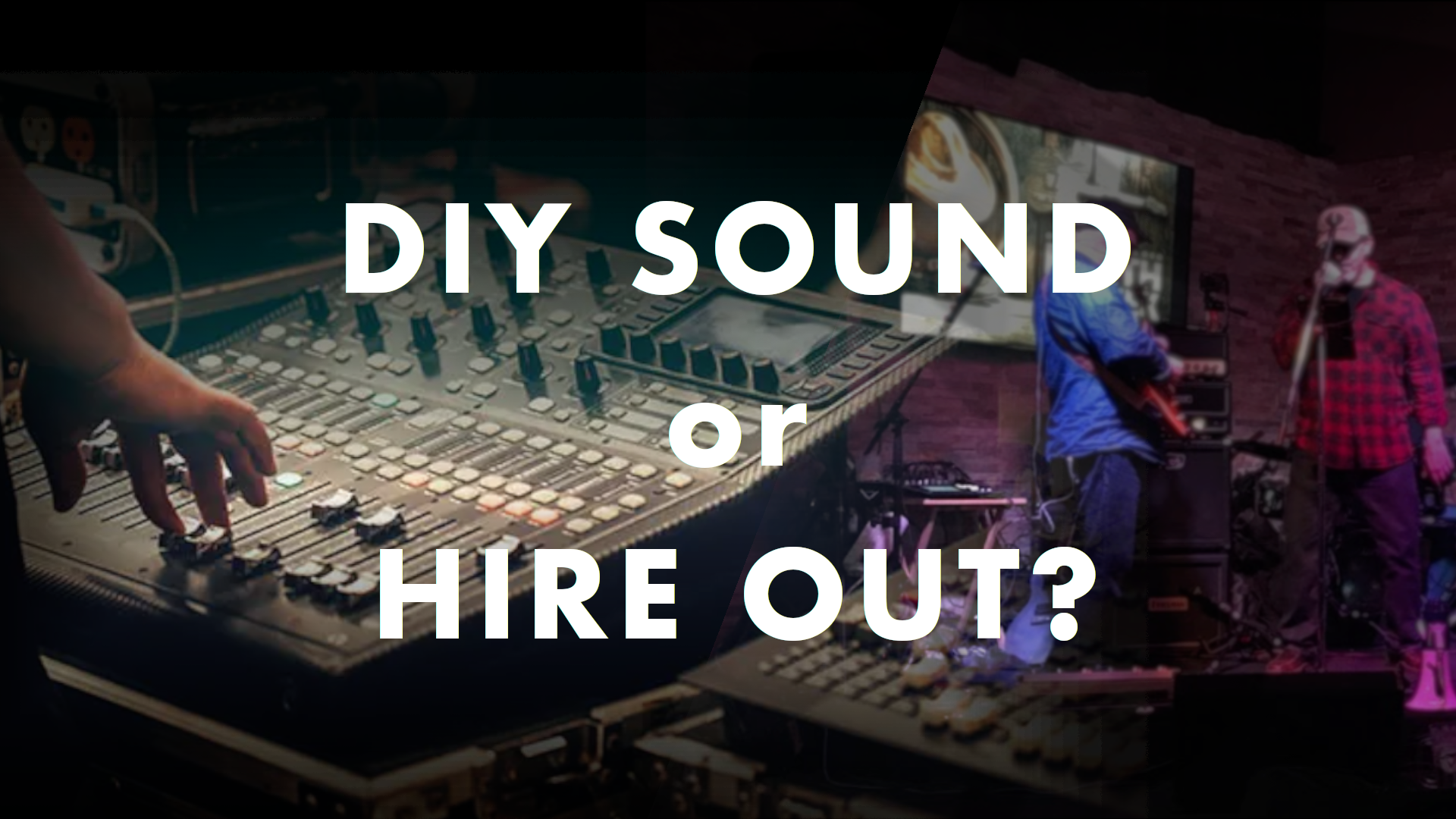
As a musician and sound engineer, I’m on both sides of this debate. I think there’s a case to be made for both positions and I’m going to lay those out here and let you decide what’s best for you!
DIY
If you’re like me and you like to save money then one area to save on (if you happen to be in a situation where you have to provide your own sound reinforcement) is hiring someone to operate the sound and lights for your show. The average pay rate for a newish band doesn’t seem to have changed much since I first started playing professionally 15 years ago, so it can be difficult to justify paying an additional person a cut of the small amount of money that you received.
More over, the way technology has progressed over the past 10 or so years, it’s become quite inexpensive to put together a quality sound system that can be operated via tablet. And you can even program light cues that you can change either with a foot switch, or also with a tablet, if you have the right know-how.
Because a start-up band typically will be playing smaller venues, the sound system required would not be as robust as a larger venue—so probably enough for vocals, keyboards and other line-level instruments, and perhaps a kick drum mic. A few small stage monitors and a pair of mains would probably be sufficient for most styles. So it’s fairly easy to set up and get a balanced sound.
HIRE OUT
But, just because it’s easy to do doesn’t necessarily mean you should. In my case I happen to know how to do the job of sound/light engineer after attending a trade school for it and having done it professionally for many years, but that may not be true for you. More important, however, is the fact that you can’t be in two places at one time, meaning you can’t fully evaluate and adjust the sound that you’re hearing on stage and do the same out in the audience. So you can never really be sure what you sound like, which is a gamble. And since first impressions count a lot in this industry, it’s worth thinking over that fact.
Additionally, if you’re finding that your live shows don’t seem to be gaining fans, one reason may in fact be because previous audiences had some hang-ups with your sound—maybe it was too loud overall, or the vocals weren’t intelligible, or it didn’t sound balanced. Whatever the case may be, it’s worth having a dedicated set of ears to listen for things like that, and who also can be devoted to setting up the system and tearing it down at the end of the show, leaving you to focus on your music. This person can also act as a stage manager, assisting members of the band when problems arise.
A further consideration is that as the musician you want to be focused on your job on the stage, which includes setting up your on-stage equipment and getting the correct sound for your show as well as talking to your audience after the show. You probably don’t want to take time away from those things to have to set up the sound system, adjust eq and balance the mix, and then break down the system after the show.
CONCLUSION
While this isn’t an exhaustive set of points for either position, it does outline the main points, so you can decide!
If you want to go the DIY route, you can check out our inventory or visit the Package Builder Page to put together a package that suits your needs. If you need someone to set it up, operate it, and tear it down, please visit the Events page and send me the info for your show!